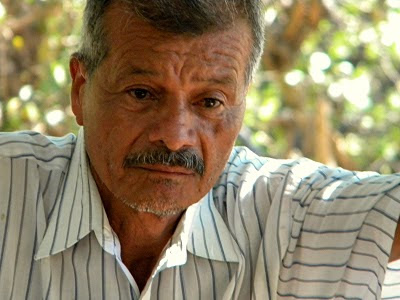the reckless, reckless praise

Right now I am physically in an in-between place. My summer with the Metro Lutheran has come to an end, and now I am in respite at my folk’s place for a few days until I start my journey west to begin my year-long internship.
The back drop for this post is three different news articles. The first is one I wrote for the Metro Lutheran concerning women’s ordination, the second is an article about inclusive language in contemporary, North American, mainline churches (how’s that for a string of adjectives!), and the last is a fantastic article about the men and women in North America today.
Briefly, a few words (well, adjectives) about myself: male, white, and lower-middle-class.
Also, in-between places. You will have to forgive my lack of citations, I do not have access to my books, they are in transit.
The question of gender is one that is of particular interest to me. One, I was not raised by my biological father, yet I did, and do, have many wonderful, loving male role models.
It is also of interest to me, because I am one of the first in my close family to complete college. I remember one day in my second year of college asking my father (technically step-father) if he thought I was a man, because I wasn’t doing physical labor. Shawn told me that I am a man, and I am blessed for that. I only bring up that example to share how this struggle has manifested itself in my life.
In Hanna Rosin’s great article, “The End of Men,” she helps shape a coherent voice to how gender is perceived and depicted in popular culture. Her reading is thoughtful to say the least. One may take issue with the dualism men and women are analyzed in. However, given Rosin’s objective, one can hardly fault her. She is not proposing any sort of action so much as she is reporting about a complex issue.
Anyone reading this article in a strict dualism between men and women may find the article threatening. The article tempts the question; in a post-modern society are men (specifically heterosexual men) obsolete?
Personally, I find this article to be full of promises (Douglas John Hall). Perhaps what is occurring is that a society, which has been deeply shaped by patriarchy, is reaching to find diverse metaphors for understanding men and women. Perhaps our popular metaphors no longer fit the lived experience of many.
This article could be speaking to the promise that the liberation of women is coming to a fuller completion.
The article could be speaking to the promise that women and men are be given an opportunity to relate to one another in new and mutual ways.
The article could be speaking to the faith of many women and men who have, and are living in society in faithful way that honors the other.
I am reminded of Rilke’s sentiment in Letters to a Young Poet, that one-day being a woman won’t mean being the opposite of being a male, and vice-versa.
Perhaps what is happening is not a threat to males, but an opportunity to live into society in a new way. Now, lest one’s reflection of such a thoughtful article be one-sided, time should be taken to speak to the potential threats.
For one thing, the article again and again gives voice to the sentiment that men are merely a hazard in today’s society. If Rosin is right in suggesting this trajectory, than the women’s liberation will be incomplete, and males will quickly become second-class citizens in post-modern societies.
We must continue to stand beside one another mutually. Rosin makes the insightful point that violence committed by middle-ages women has dramatically increased since the 1980’s. Rosin doesn’t hypostasize why this is happening, she simply notes it within the context of the rise of an alpha-female metaphor.
Rather than leaving the women who are moving into new roles to their own devices, perhaps we can stand together in mutual support. As men move into new roles, perhaps these pursuits can be considered something other than failure.
This will take patience, understanding and forgiveness by many. And that leads me to my last point: the importance inclusive language. Names for God such as Father, Son and Holy Spirit are appropriate in specific circumstances. To fix these names as literal descriptions is to make an idol of them (Sallie McFague).
Finally, maleness is not the same as divine. Now we are seeing that this asymmetrical association of one gender with God is not only oppressive to females, but it is also oppressive to males. Inclusive language is not esoteric self-help for women. It is a faithful way of speaking about God’s presence in the midst of men and women in society. This inclusive God is constantly creating promises for her creation (men, women, and the non-sentient).

I read that article, "The End of Men," and I found it frustrating. She acknowledges that gender stereotypes are inaccurate, but still draws on them. She seems to downplay some of the real problems women still face, while also lumping men into this pathetic, homogeneous group. I think there's truth to what she's trying to say, but the article itself had so many problems that it was hard to read.
ReplyDeleteYou mention the promise of "society, which has been deeply shaped by patriarchy, is reaching to find diverse metaphors for understanding men and women." I can see how that might be happening, and I hope that promise comes to pass. But I don't see those diverse metaphors in this article. I see tired old gender stereotypes.